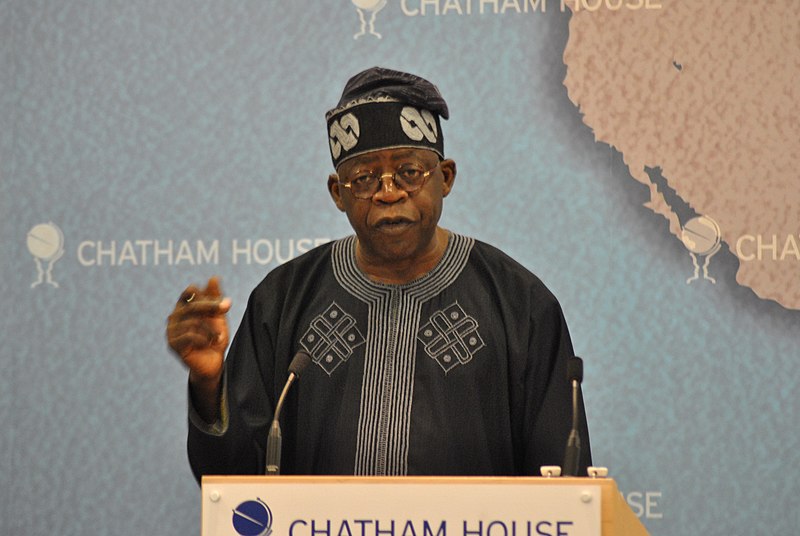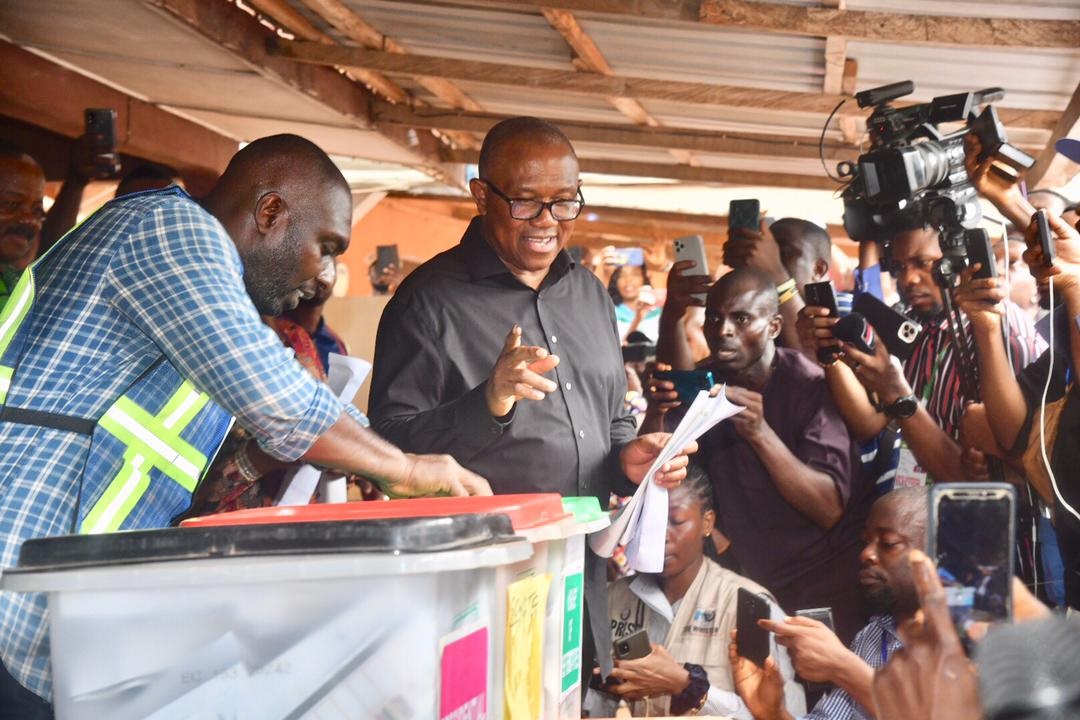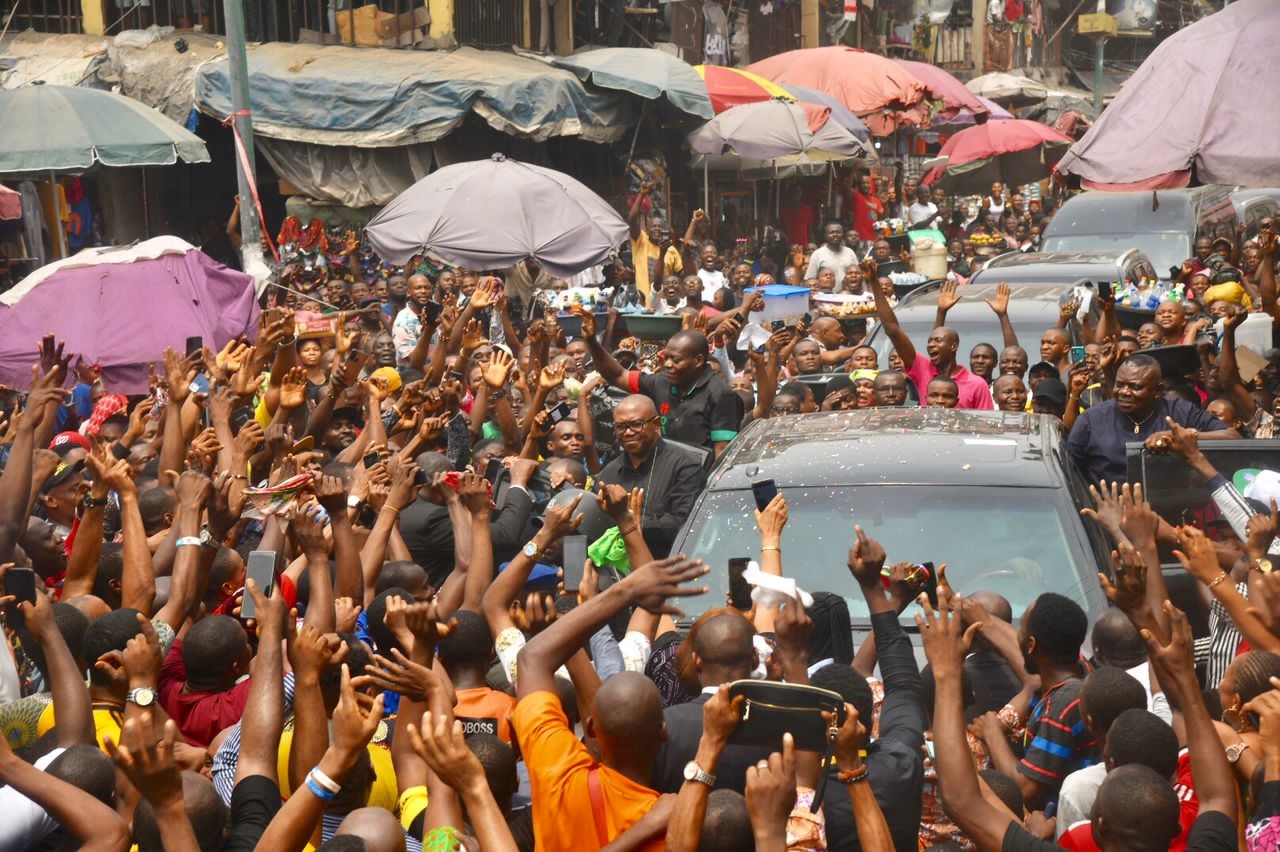With 8,794,726 votes, representing 36.61 percent of the total vote cast; Bola Hammed Tinubu, candidate of the ruling APC, won a highly contested and contentious general election. Former Vice-President Atiku Abubakar, the candidate of the PDP, came second with a total vote of 6,984,520 votes, representing 29.07 percent of the total. But, the greatest upset in this particular election was the performance of the Labour Party candidate, Peter Obi, who scored a total vote of 6,101,533 (25.40 percent) coming in third but with an almost non-existing party structure. This is a clear indication that the Nigerian masses are looking for an alternative on the political front.
He beat Bola Tinubu in Lagos State, a state that is meant to be the traditional base of Tinubu, in which he was governor for eight years, and where he remains a political ‘elder statesman’, with a lot of public recognition. No one in the last 24 years of this republic has ever beaten Tinubu in Lagos. It was generally believed, before last Saturday, that it would take a civil war or a revolution to overthrow Tinubu’s APC and its political machine in Lagos. But instead, a relatively peaceful ‘political revolution’ successfully challenged his dominance. How are we to explain this earthquake?
What really happened?
 The APC has completely lost its social base / Image: Chatham House, Wikimedia Commons
The APC has completely lost its social base / Image: Chatham House, Wikimedia Commons
Having squandered its initial manipulative and deceptive goodwill (with which it came to power in 2015) through its capitalist policies of privatisation of everything in sight, the APC has completely lost its social base, just like the PDP before it. Its promises are no longer trusted by the masses, because all its promises of change have been exposed as a change from bad to worse.
It therefore had only very little in the way of a programme to campaign on in this election. It eventually resulted to ethnic and religious demagogy. By putting forward an unusual Muslim-Muslim ticket (with both the president and vice-president being Muslim, in a society that is almost equally divided into Muslim/Christian), Tinubu’s APC put the question point blank to majority-Muslim Northern voters: “Your ethnic brother [Atiku of the PDP] or Prophet Mohammed?
He then came to the Yoruba-dominated South-West, where he himself comes from, and introduced especially toxic ethnic politics to consolidate his grip on the region. From his uninspiring “Emi lokan (‘it is my turn’)” slogan, to “Olule”(‘he fell down’, referring to the previous PDP regime), he moved to “A ma dibo, a ma wole”(‘We will vote and we will win’), deliberately raising slogans in the Yoruba language to maintain his ethnic base in the contest, while keeping his focus on the Muslim-dominated North.
His tactics were sufficient to win the presidency, but he must also be aware that he is preparing to rule over a country that is sharply divided along ethnic and religious lines. Tinubu’s APC was able to get away with these tactics mainly, because his so-called opponents equally lacked any programme.
Obi, the candidate of the Labour Party, was a former Governor of Anambra State and an obedient servant of capitalist interests. His campaign was not clearly different from the others, despite standing on the platform of Labour, with its affiliation to the big Trade Union Centers. In the same vein, Atiku was the chairman of the Privatisation and Commercialisation Committee (yes, that was its actual name) when he was vice president. Sixteen years of hardship under the rule of the PDP had already done irreparable damage to the image of the party. The party was terribly divided, almost in half, North and South, and the only thing that saved him from total humiliation was that he came from the North, and a sizable number of Northern electorate voted for ethnicity rather than religion. He came second at the expense of finally reducing the PDP to a regional party, having won a total of nine states in the North (very narrowly) and three states in the South. A one-time national party seems to have been finally relegated to a party of the North.
As noted, the biggest upset in this election was the strong showing for Obi and theLabour Party. A party that was almost non-existent a few months ago almost overtook the PDP, and won in the commercial and industrial capital of the country. The party also won six seats in the Senate by defeating three sitting governors, and many seats in the House of Representatives, majorly in the South-East and Lagos.
Lagos state was the epicentre of that magnificent 2020 EndSARS movement, and the Nigerian youth were very clear in their political position during this movement: “Neither APC, Nor PDP!” The brutal attack on this movement by the state and the complicity of Tinubu, was never forgotten by the youth, who ensured a (relatively peaceful) defeat for Tinubu. Despite the intimidation, violence and highest level of thuggery displayed by the APC thugs during the election, the Lagos youth and the poor masses successfully humiliated Tinubu in Lagos.
The newly sworn-in leadership of the Nigeria Labour Congress (NLC) came out at the last minute with a press statement calling for support of the Labour Party in the election. However, this call by the NLC leadership failed to tap into the full potential that was there. This is because Obi, although he stood on the Labour Party ticket, has nothing in common with wishes and aspirations of the working-class. It is not enough to own the party, the NLC needs to also control it, and make sure that it actually is a party that defends the real interests of working people in Nigeria
What is to be done?
 The Labour Party, despite all its glaring shortcomings, has been thrown forward by the masses as a vehicle with which to challenge the ruling elite / Image: Peter Obi, Twitter
The Labour Party, despite all its glaring shortcomings, has been thrown forward by the masses as a vehicle with which to challenge the ruling elite / Image: Peter Obi, Twitter
Now Tinubu has been declared the winner, but he now has to rule over a terribly divided country that is passing through a historical crisis, while the workers and youths are on the march. Tinubu’s regime will have no honeymoon period, while all the attempts he will make to stabilise the economy will consistently end-up destabilising the political situation.
The Labour Party, despite all its glaring shortcomings, however, has been thrown forward by the masses as a vehicle with which to challenge the hegemony of the crisis-ridden ruling elite that dominates the country. The main Trade Union Centers, the NLC and TUC, can now no longer pretend that this party was not founded by them, using resources from their working-class activists.
It is not sufficient to only once in a while announce their ownership of the party: it needs to be consciously taken over by and put under the firm control of the working class. It is only on this basis that a genuine opposition party, a national party of labour, can be built. This will be the best instrument for challenging the series of attacks that are being planned against the working class in the coming period.
The time to reclaim the Labour Party as a genuine weapon of and for labour, is now!

